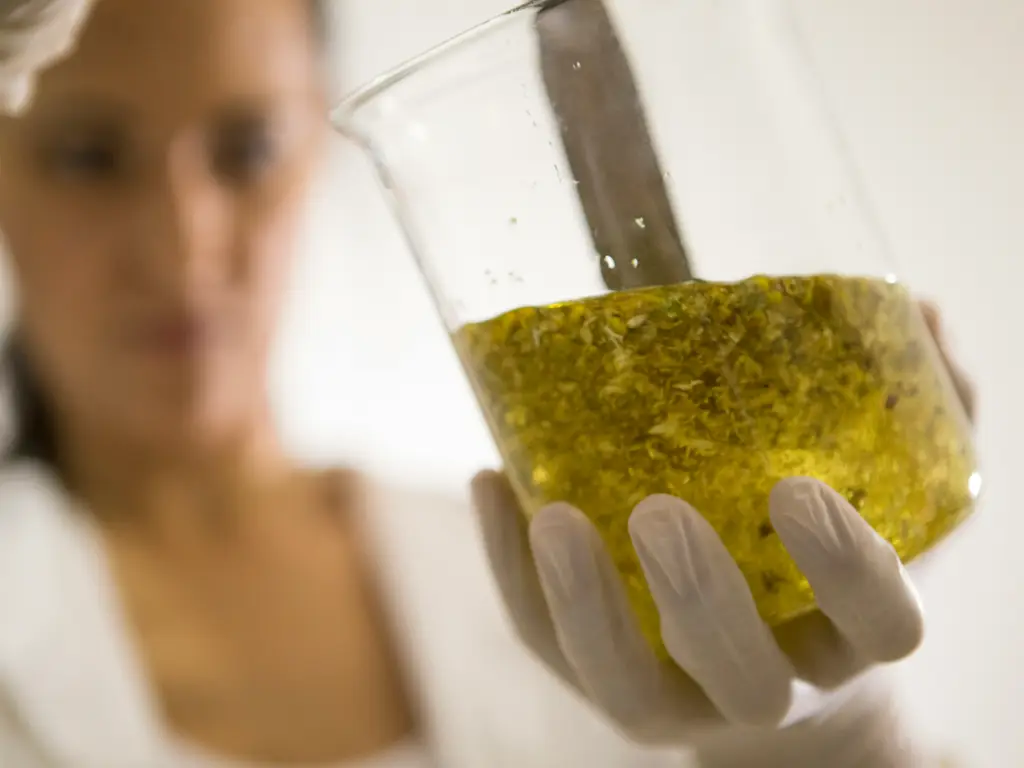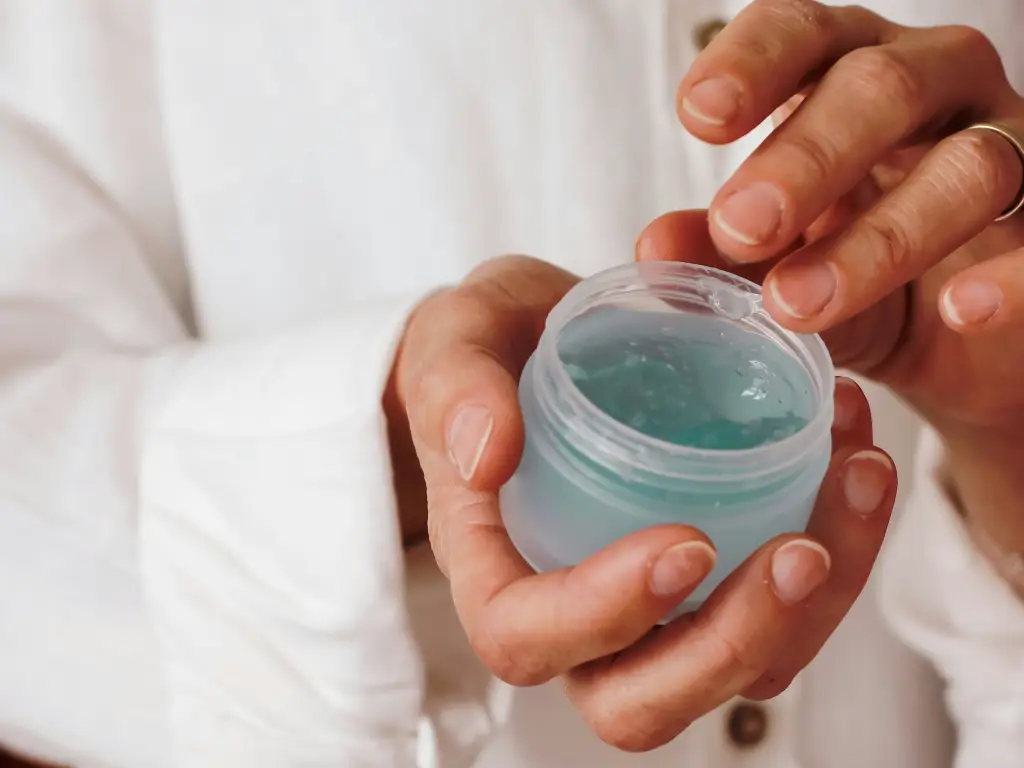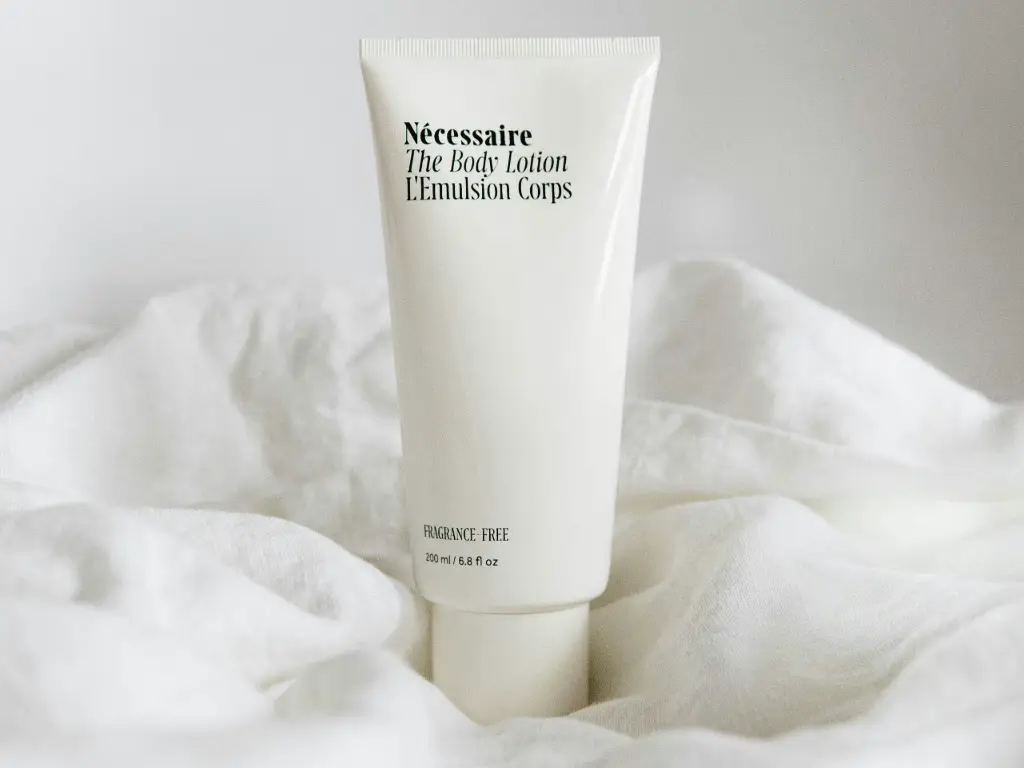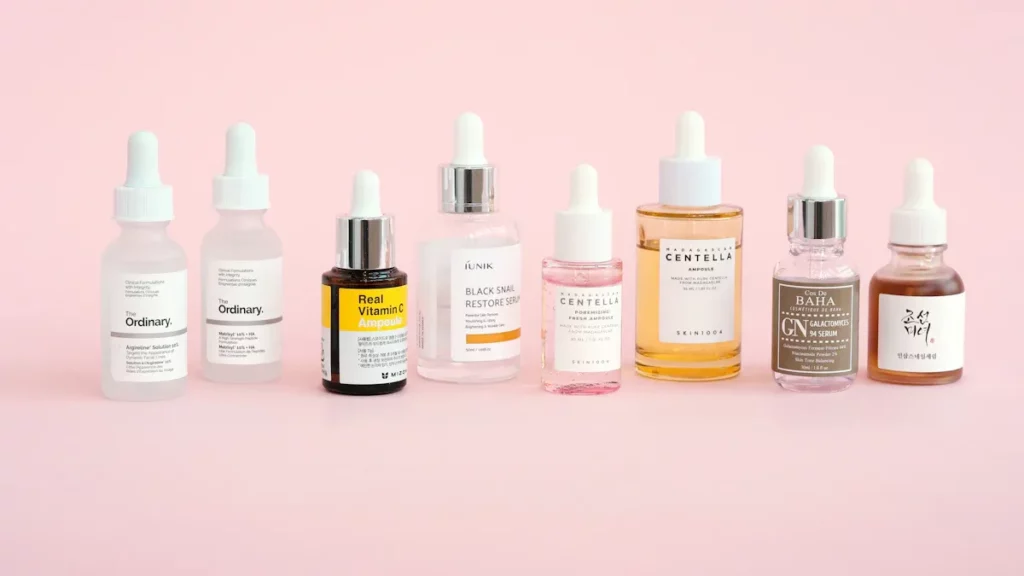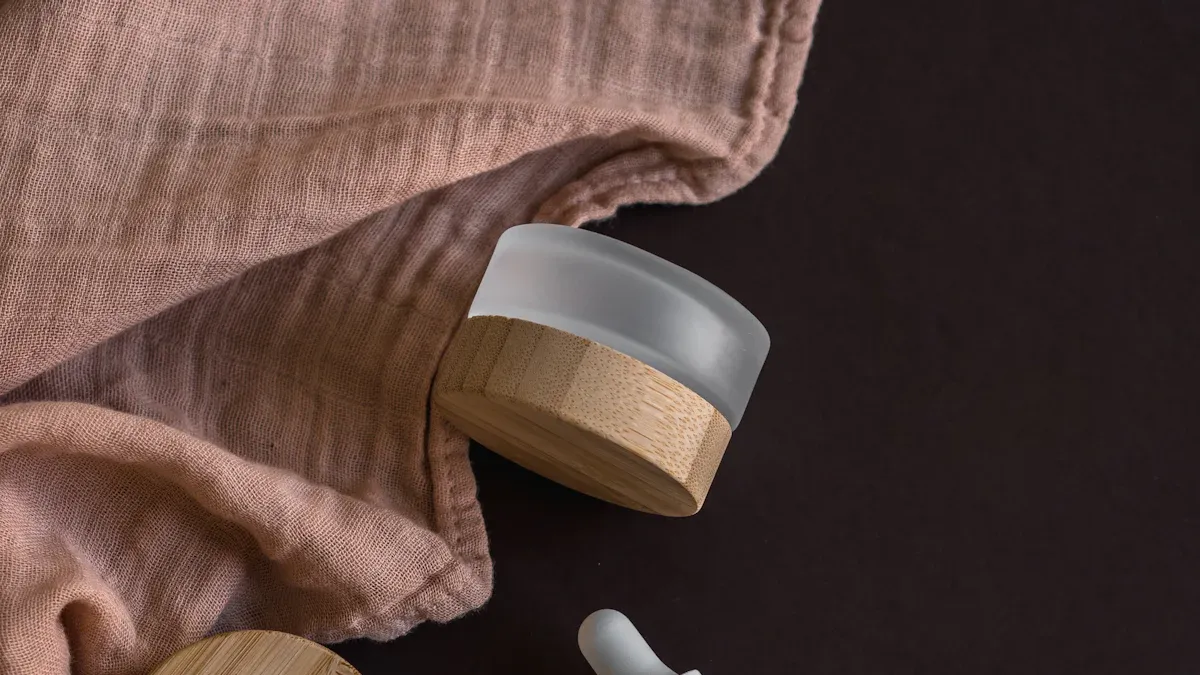
When it comes to creating scalable beauty products, one big question arises: should you choose private label or contract manufacturing? These two approaches might sound similar, but they’re quite different. Private label lets you pick ready-made products and sell them under your brand. Contract manufacturing, d'autre part, gives you the chance to design custom products from scratch.
Understanding Private Label vs. Contract Manufacturing is crucial for beauty brands. Pourquoi? Because the right choice can help you scale faster, cut costs, et se démarquer sur un marché bondé. The wrong one could slow you down. Donc, how do you decide? Let’s dive in.
Private Label Manufacturing Explained
What is Private Label Manufacturing?
Private label manufacturing is a business model where you partner with a third-party manufacturer to create products that you sell under your brand name. These manufacturers handle the production process, allowing you to focus on building your brand and connecting with your customers.
Private label cosmetics are made by third-party companies and sold under a retailer’s brand.
This approach enables you to offer high-quality products without needing your own manufacturing facility.
It also allows you to expand your product line quickly and establish a strong presence in the market.
By choosing private label manufacturing, you can differentiate your brand through unique packaging and formulations. This model helps you build customer loyalty by consistently delivering quality products.
How Private Label Works in Beauty Products
In the beauty industry, private label manufacturing simplifies the process of bringing products to market. You collaborate with a manufacturer to select pre-formulated products or customize them slightly to align with your brand’s vision.
Here’s how it works:
You choose from a catalog of pre-made formulations, such as skincare, casse-tête, or cosmetics.
The manufacturer customizes the packaging and labeling to reflect your brand identity.
Once finalized, the products are produced and shipped to you or directly to your customers.
This streamlined process allows you to focus on marketing and sales while the manufacturer handles production.
Advantages of Private Label for Beauty Brands
Private label manufacturing offers several benefits for beauty brands:
Cost-Effective: Private label products are typically 20-30% cheaper than branded alternatives, making them budget-friendly.
Faster Market Entry: With pre-formulated products, you can launch your line quickly and respond to trends faster.
High Demand: Around 80% of U.S. consumers regularly buy private labels, appreciating their quality and affordability.
Scalability: As your brand grows, you can easily expand your product range without major investments.
This model also helps you cater to niche markets, such as organic or cruelty-free products, giving you a competitive edge.
Challenges of Private Label Manufacturing
While private label manufacturing offers many benefits, it’s not without its challenges. If you’re considering this approach, it’s important to know what hurdles you might face so you can plan ahead.
Competitive Market: The private label cosmetics market is crowded. Many brands rely on similar formulations, making it harder to stand out. To succeed, you’ll need a strong branding strategy that highlights what makes your products unique.
Higher Minimum Order Quantities: Private label manufacturing often requires you to place larger initial orders. This can strain your budget, surtout si vous débutez. Plus, storing unsold inventory can become a headache.
Limited Formula Control: While you can customize packaging and branding, you may have less control over the product formulas. Making changes to pre-made formulations can be tricky, which might limit your ability to innovate or meet specific customer demands.
Conseil: To overcome these challenges, focus on building a clear brand identity. Research your target audience and choose products that align with their needs. This will help you stand out, even in a competitive market.
Despite these obstacles, private label manufacturing remains a great option for many beauty brands. By understanding these challenges, you can make smarter decisions and set your business up for success.
Contract Manufacturing Explained
What is Contract Manufacturing?
Contract manufacturing is a process where beauty brands outsource the production of their products to specialized manufacturers. These manufacturers handle everything from formulation to packaging, allowing you to focus on marketing and brand development. This approach is ideal for creating custom products that align with your vision while leveraging the expertise of professionals in the field.
If you’re looking for high-quality contract manufacturing, this model ensures your products meet industry standards and consumer expectations. By collaborating with experienced manufacturers, you can bring innovative ideas to life without the need for your own production facility.
How Contract Manufacturing Works in Beauty Products
Contract manufacturing follows a structured process to ensure your products are tailored to your brand’s needs. Here’s how it typically works:
Understanding Client Specifications: Manufacturers start by discussing your brand ethos, target market, and product requirements.
Sourcing Materials: They select high-quality, ethically sourced ingredients that align with your values and comply with regulations.
Prototype Development: Initial samples are created and tested rigorously. Feedback is used to refine the product until it meets your expectations.
Scaling Up: Once prototypes are approved, production scales up while maintaining consistency and quality.
Contrôle de qualité: Continuous testing ensures the final product adheres to specifications.
Packaging and Fulfillment: Packaging is designed to resonate with your branding, and logistics are managed for seamless delivery.
This step-by-step process ensures your products are not only unique but also scalable, making it easier for your brand to grow.
Advantages of Contract Manufacturing for Beauty Brands
Contract manufacturing offers several benefits that can help your brand thrive:
Factor | Description |
|---|---|
Consumer Demand | Growing interest in natural, organique, et produits sans cruauté. |
Innovative Packaging | Emphasis on creative and eco-friendly designs that attract customers. |
R&D Investment | Access to advanced research and development for specialty formulations. |
Croissance du marché | Expansion of the beauty industry, especially among men and millennials. |
Skincare Demand | Rising popularity of skincare products with natural ingredients. |
By choosing contract manufacturing, you can tap into these trends and create products that resonate with your audience. This model also allows you to innovate and differentiate your brand in a competitive market.
Challenges of Contract Manufacturing
While contract manufacturing offers many benefits, it also comes with its own set of challenges. Understanding these hurdles can help you avoid costly mistakes and set your beauty brand up for success.
One common issue is miscommunication. If you and the manufacturer aren’t on the same page, it can lead to delays or products that don’t meet your expectations. Clear communication and setting detailed expectations are essential to avoid this. Another challenge is ingredient quality. Some manufacturers might cut corners by using low-quality ingredients, which can harm your product’s performance and reputation. Always prioritize quality control and test ingredients thoroughly.
Regulatory compliance is another area where things can go wrong. Beauty products must meet strict regulations, and non-compliance can result in fines or legal trouble. Make sure your manufacturer understands these requirements and follows them closely. De la même manière, skipping stability and compatibility testing can cause problems. Without proper testing, your products might degrade over time or react poorly with packaging.
Intellectual property protection is also crucial. If you don’t secure your formulations, you risk theft or disputes. A detailed manufacturing agreement can help protect your brand and clarify responsibilities. En plus, underestimating production timelines can disrupt your launch plans. Always plan for potential delays and unexpected costs.
Lastly, don’t overlook packaging design. Poorly designed packaging can damage your products or fail to attract customers. Work closely with your manufacturer to create functional and appealing packaging that aligns with your brand.
By addressing these challenges head-on, you can make the most of contract manufacturing and build a strong foundation for your beauty brand.
Private Label vs. Contract Manufacturing: Key Differences

Customization and Product Uniqueness
When it comes to product customization, private label and contract manufacturing take very different approaches. Private label manufacturing offers pre-made products that you can brand as your own. While you can tweak the packaging and labeling, the core product remains the same. This makes it a great option if you’re looking for a quick and affordable way to enter the market.
Contract manufacturing, d'autre part, gives you full control over the product development process. You can create custom formulations, choose specific ingredients, and design a product that aligns perfectly with your brand’s vision. This level of customization allows you to stand out in a crowded market and cater to niche customer needs.
Contract manufacturing provides extensive control over product development, enabling brands to customize designs and create unique products tailored to their specifications. In contrast, private label products are pre-made, offering limited customization options, primarily allowing for branding without significant alterations.
Cependant, custom formulations often come with additional costs. These include research and development (R&D) fees, stability testing, and larger minimum order quantities (Moqs). Private label manufacturers have already covered these expenses, making it a more budget-friendly option for smaller brands.
Custom formulation involves:
R&D fees
Larger MOQs
Stability testing fees
Private label manufacturers cover these costs, offering lower MOQs and a more affordable production process.
If your goal is to create a unique product that reflects your brand’s identity, contract manufacturing is the way to go. But if you’re looking for a cost-effective solution with faster results, private label manufacturing might be a better fit.
Cost and Investment Requirements
The cost of production is another key difference between private label and contract manufacturing. Private label manufacturing is generally more affordable because the products are pre-made. You don’t have to invest in R&D, essai, or certifications, which significantly lowers your upfront costs. This makes it an excellent choice for startups or brands with limited budgets.
Contract manufacturing, however, requires a higher initial investment. You’ll need to pay for custom formulations, ingredient sourcing, and extensive testing to ensure quality and compliance. While this approach is more expensive, it allows you to create a product that’s truly unique and tailored to your brand.
Here’s a quick comparison of the market size and growth potential for private label and contract manufacturing:
Métrique | Valeur |
|---|---|
Approximately $25 milliard | |
Projected Market Size 2032 | $40 milliard |
CAGR (2023-2032) | 5.5% |
If you’re just starting out, private label manufacturing offers a low-risk way to test the market. But if you’re ready to invest in a long-term strategy, contract manufacturing can help you build a distinctive brand.
Speed to Market and Production Timelines
Speed to market is crucial in the beauty industry, especially when trends change so quickly. Private label manufacturing excels in this area. Since the products are pre-made, you can launch your brand in a matter of weeks. This allows you to respond to market trends and customer demands faster than your competitors.
Contract manufacturing, while offering more customization, takes longer. The process involves R&D, prototype development, essai, and scaling up production. Each step requires time and attention to detail, which can delay your product launch. Cependant, the end result is a high-quality, custom product that aligns perfectly with your brand’s vision.
If you’re looking to capitalize on a trend or enter the market quickly, private label manufacturing is the better option. But if you’re focused on creating a unique product that stands out, the extra time required for contract manufacturing is worth it.
Brand Differentiation and Market Positioning
When it comes to standing out in the beauty industry, how you position your brand can make or break your success. Your choice between private label and contract manufacturing plays a huge role in shaping your brand’s identity and how customers perceive it. Let’s explore how these manufacturing models impact your ability to differentiate and position your brand effectively.
How Private Label Impacts Brand Differentiation
Private label manufacturing offers a quick and affordable way to enter the market. Cependant, because the products are pre-made, your ability to stand out depends heavily on your branding and marketing efforts. You’ll need to focus on creating a strong visual identity, compelling packaging, and a clear message that resonates with your target audience.
Par exemple, if you’re selling a private label skincare line, you might emphasize eco-friendly packaging or cruelty-free certifications to appeal to conscious consumers. These elements can help you carve out a niche, even if the product itself isn’t entirely unique.
That said, the limited customization options in private label manufacturing can make it harder to differentiate your products from competitors using similar formulations. To overcome this, you’ll need to double down on storytelling and customer engagement. Highlight what makes your brand special—whether it’s your commitment to sustainability, affordability, or inclusivity.
How Contract Manufacturing Enhances Market Positioning
Contract manufacturing, d'autre part, gives you the freedom to create products that are truly one-of-a-kind. This level of customization allows you to align your products with emerging trends and specific consumer preferences. Par exemple, you could develop a skincare line featuring rare, natural ingredients or a haircare product designed for a specific hair type. These unique offerings can set you apart in a crowded market.
By working closely with a contract manufacturer, you can also ensure that your products reflect your brand’s values. Whether it’s using organic ingredients, adopting sustainable practices, or creating innovative packaging, contract manufacturing lets you build a brand that feels authentic and distinctive.
Conseil: Use contract manufacturing to tap into trends like eco-friendly beauty or clean skincare. These trends not only attract loyal customers but also position your brand as forward-thinking and socially responsible.
Key Factors Influencing Brand Differentiation
To position your brand effectively, you need to understand the factors that influence differentiation in the beauty industry. Here’s a quick breakdown:
Aspect | Insight |
|---|---|
Competitive Analysis | The beauty industry has transformed with a demand for natural and organic products, necessitating thorough competitive analysis for brands to maintain an edge. |
Comportement des consommateurs | Understanding consumer preferences is crucial for brands to tailor their offerings and differentiate effectively. |
Emerging Trends | Brands can capitalize on trends like eco-friendly products to enhance their market positioning. |
En plus, consider these elements when crafting your strategy:
Brand Loyalty: Build trust by consistently delivering quality products.
Price Sensitivity: Offer value for money to attract budget-conscious customers.
Qualité du produit: Ensure your products meet high standards to foster positive reviews and repeat purchases.
Social Influence: Leverage social media and influencer partnerships to amplify your brand’s reach.
Choosing the Right Model for Your Brand
The key differences between private label and contract manufacturing boil down to customization and control. If you’re looking for a cost-effective way to test the market, private label manufacturing is a great starting point. But if you want to create a brand that stands out with unique products, contract manufacturing offers the flexibility you need.
Ultimately, your decision should align with your brand’s goals and the needs of your target audience. Take the time to analyze your market, understand your customers, and define what makes your brand unique. This will help you choose the manufacturing model that best supports your vision and positions your brand for long-term success.
Choosing Between Private Label and Contract Manufacturing
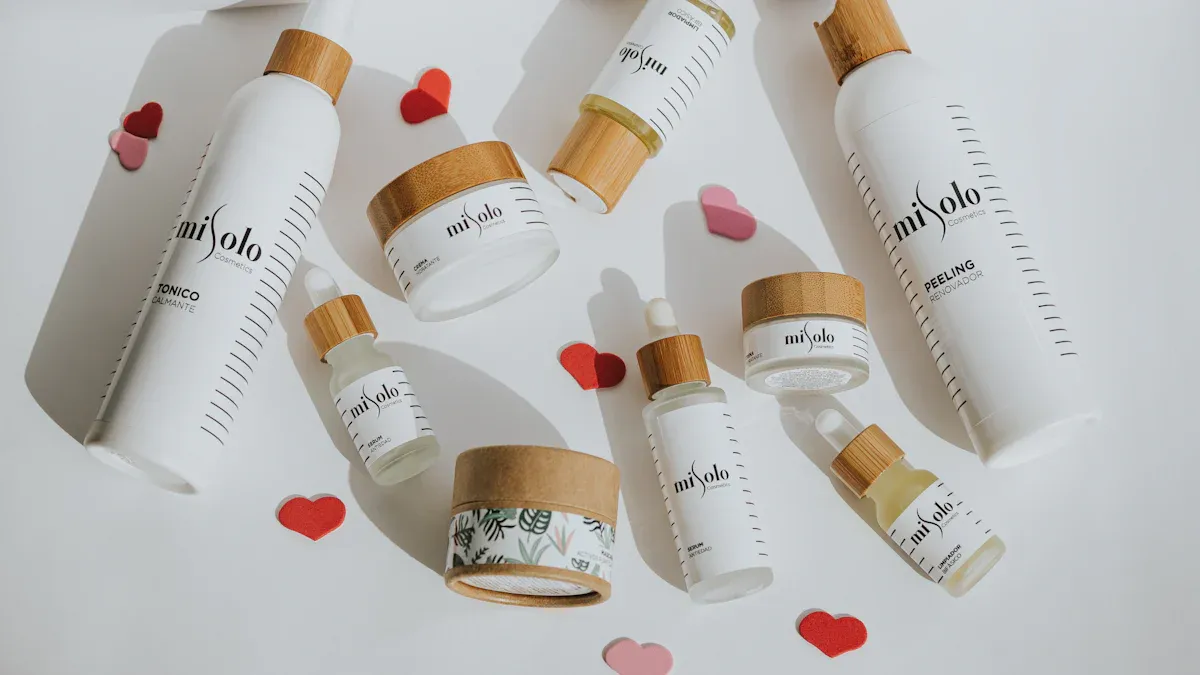
Aligning Your Brand Goals and Vision
Your brand goals and vision should guide every decision you make, including choosing between private label and contract manufacturing. Think about what your brand stands for and how you want customers to perceive it. Are you aiming for quick market entry with affordable products? Or do you want to create a unique line that reflects your values and stands out?
Private label manufacturing works well if your goal is to establish a presence quickly. You can select pre-made products, customize the packaging, and start selling under your brand name. This approach is ideal for brands that prioritize affordability and speed.
Contract manufacturing, however, gives you the freedom to align your products with your brand identity. If sustainability or innovation is part of your vision, this model lets you create custom formulations that reflect those values. Par exemple, companies like Unilever have successfully integrated sustainability into their product development process, enhancing their reputation and building consumer loyalty.
Conseil: Before deciding, write down your brand’s mission statement and core values. Use these as a framework to evaluate which manufacturing model aligns best with your goals.
Budget Considerations for Beauty Brands
Budget plays a big role in deciding between private label and contract manufacturing. If you’re working with limited funds, private label manufacturing is a cost-effective option. You don’t have to invest in research and development, ingredient sourcing, or extensive testing. This makes it easier to launch your products without breaking the bank.
Contract manufacturing, d'autre part, requires a higher upfront investment. Formulations personnalisées, prototype development, and quality testing all add to the cost. While this approach is more expensive, it allows you to create unique products that can command higher prices and build long-term brand loyalty.
Here’s a quick comparison to help you weigh your options:
Manufacturing Model | Upfront Costs | Personnalisation | Scalability | Speed to Market |
|---|---|---|---|---|
Private Label | Low | Limited | High | Fast |
Contract Manufacturing | High | Extensive | High | Slower |
Note: If you’re just starting out, private label manufacturing offers a low-risk way to test the market. As your brand grows, you can transition to contract manufacturing for more customization and scalability.
Understanding Your Target Market and Product Needs
Knowing your target market is key to choosing the right manufacturing model. What do your customers care about? Are they looking for affordable products, or do they value unique formulations and eco-friendly packaging?
Private label manufacturing is great for meeting broad consumer needs. You can quickly launch products that appeal to popular trends, like cruelty-free or organic beauty. Cependant, if your audience has specific preferences, contract manufacturing allows you to tailor products to their needs. Par exemple, you could develop a skincare line with rare ingredients or a haircare product designed for curly hair.
Market research can help you understand your audience better. It answers critical questions about consumer preferences and advertising effectiveness. Collecting feedback before launching a product ensures you’re meeting customer expectations and optimizing your resources.
Conseil: Conduct surveys or focus groups to learn what your customers want. Use this information to decide whether private label or contract manufacturing is the best fit for your brand.
Examples of When to Choose Private Label vs Contract Manufacturing
Deciding between private label and contract manufacturing depends on your brand’s goals, budget, et le public cible. Let’s explore some real-world scenarios to help you understand when each option makes sense.
When Private Label is the Right Choice
Private label manufacturing is perfect if you’re looking for a fast, cost-effective way to enter the beauty market. Imagine you’re a small business owner with a limited budget. You want to launch a skincare line but don’t have the resources for research and development. In this case, private label manufacturing allows you to select pre-made formulations, customize the packaging, and start selling under your brand name.
Retail giants like Walmart and Target have successfully used this approach. Walmart’s ‘Equate’ line, Par exemple, offers affordable skincare solutions that appeal to budget-conscious consumers. By choosing private label manufacturing, these retailers meet the demand for quality products at lower prices. This strategy works well if your audience values affordability and you want to establish your brand quickly.
Private label is also ideal for testing the waters. If you’re unsure how your products will perform, starting with a private label line minimizes risk. You can gauge customer interest without committing to the higher costs of custom formulations. Plus, it’s a great way to respond to trends. Par exemple, if cruelty-free beauty is trending, you can quickly launch a private label product line that aligns with this demand.
When Contract Manufacturing is the Better Option
Contract manufacturing shines when you want to create unique, high-quality products that reflect your brand’s identity. Let’s say you’re building a luxury skincare brand. Your customers expect premium ingredients, innovative formulations, and elegant packaging. Private label options might not meet these expectations. With contract manufacturing, you can work with experts to develop custom products that align with your vision.
Par exemple, imagine you want to launch a haircare line specifically for curly hair. Contract manufacturing allows you to design a product with specialized ingredients that cater to this niche market. This level of customization helps you stand out and build a loyal customer base. It’s also a smart choice if your brand focuses on sustainability. You can collaborate with manufacturers to source eco-friendly materials and create packaging that aligns with your values.
Contract manufacturing is also ideal for scaling your business. If you’ve already established a strong brand and want to expand your product line, this approach gives you the flexibility to innovate. You can introduce new products that cater to emerging trends, like clean beauty or plant-based skincare, ensuring your brand stays relevant in a competitive market.
Comparing the Two Approaches
Here’s a quick breakdown to help you decide:
Scenario | Best Option | Pourquoi? |
|---|---|---|
Launching quickly on a budget | Private Label | Pre-made products save time and money. |
Testing a new product idea | Private Label | Low-risk way to gauge customer interest. |
Building a luxury or niche brand | Contract Manufacturing | Custom formulations meet specific customer needs. |
Expanding an established brand | Contract Manufacturing | Flexibility to innovate and create unique products. |
Responding to market trends | Private Label | Faster speed to market with pre-made options. |
Focusing on sustainability | Contract Manufacturing | Allows for eco-friendly ingredients and packaging. |
Conseil: Think about your long-term goals. If you’re just starting out, private label manufacturing is a great way to test the market. But if you’re ready to invest in a distinctive brand, contract manufacturing offers the customization you need.
By understanding these scenarios, you can make an informed decision that aligns with your brand’s vision and sets you up for success.
Oully: A Trusted Partner for Beauty Brands
Overview of Oully’s Private Label and Contract Manufacturing Services
When you’re looking for a trusted and reliable manufacturer to scale your beauty brand, Oully stands out as a top choice. Avec plus d'une décennie d'expérience, Oully specializes in both private label and contract manufacturing services. Whether you need ready-made products to launch quickly or custom formulations to bring your unique vision to life, Oully has you covered.
Operating from a 45,000 carré. pi. FDA-, Is-, and cGMP-certified facility, Oully ensures every product meets the highest standards of quality and safety. Here’s a quick look at their certifications:
Certification/Standard | Description |
|---|---|
GMP | Good Manufacturing Practices ensure products are consistently produced and controlled. |
OIN 22716 | Guidelines for the production, control, storage, and shipment of cosmetic products. |
Sans cruauté | Assurance that products are not tested on animals. |
FDA | Compliance with U.S. Food and Drug Administration regulations for safety and efficacy. |
These certifications highlight Oully’s commitment to delivering safe, high-quality products that align with your brand’s values.
Benefits of Working with Oully for Scalable Beauty Products
Partnering with Oully offers you a range of benefits that make scaling your beauty brand easier and more efficient. Here’s what you can expect:
Flexibility: Oully provides low minimum order quantities (Moqs), making it accessible for startups and established brands alike.
Speed: With a fast 29-day production turnaround, you can respond to market trends quickly.
Portée mondiale: Oully serves clients in over 20 pays, ensuring your products can reach a worldwide audience.
End-to-End Support: From formulation to packaging design, Oully’s comprehensive services let you focus on growing your brand while they handle the rest.
En choisissant ouly, you gain a partner that understands the challenges of scaling and offers solutions tailored to your needs.
How Oully Supports Brand Innovation and Sustainability
Innovation and sustainability are at the heart of Oully’s approach to contract manufacturing services. As the beauty industry shifts toward eco-friendly practices, Oully helps brands stay ahead of the curve.
They embrace upcycling trends by incorporating repurposed ingredients into formulations.
Their focus on biodegradable ingredients and packaging aligns with the growing demand for sustainable beauty products.
Oully works with brands to reduce their carbon footprint, meeting consumer expectations for environmentally responsible practices.
En s'associant à ouly, you can create products that not only stand out but also reflect your commitment to a greener future. Whether you’re launching a private label line or developing custom products through contract manufacturing, Oully ensures your brand stays innovative and sustainable.
Choosing between private label and contract manufacturing depends on your brand’s goals, budget, and audience. Private label manufacturing offers lower costs and faster market entry, making it ideal for smaller companies or those testing new ideas. Contract manufacturing, however, provides unmatched customization, allowing you to create unique products that stand out and appeal to niche markets.
To make the right choice, focus on aligning your manufacturing strategy with your brand’s vision. Use data analytics to understand customer behavior and track performance. Stay flexible by researching industry trends and engaging with your audience through social media. If you’re looking for quick scalability, private label is a great starting point. For long-term growth and differentiation, contract manufacturing is worth the investment.
Conseil: Start small with private label to test the waters, then transition to contract manufacturing as your brand grows and demands more customization.
FAQ
What is the main difference between private label and contract manufacturing?
Private label offers pre-made products that you can brand as your own, while contract manufacturing lets you create custom products from scratch. Private label is faster and more affordable, but contract manufacturing gives you more control and uniqueness.
How do I decide which manufacturing model suits my brand?
Think about your goals. If you want a quick launch with minimal investment, go for private label. If you aim to create a unique product that reflects your brand’s identity, contract manufacturing is the better choice.
Can I switch from private label to contract manufacturing later?
Oui, tu peux! Many brands start with private label to test the market and later transition to contract manufacturing when they’re ready to scale or create custom products.
Are private label products high quality?
Absolument! Private label manufacturers often use high-quality formulations. The key is to choose a reputable manufacturer that aligns with your brand’s standards and values.
Is contract manufacturing only for large brands?
Not at all. While it requires a higher investment, small brands can use contract manufacturing to create niche products or cater to specific customer needs. It’s a great way to stand out in the market.

